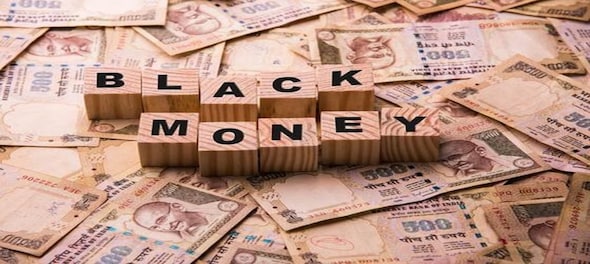
The Financial Action Task Force (FATF) released its annual list of jurisdictions under increased monitoring on March 5. Among the nations that had been listed in 2021, there were only two changes -- Zimbabwe was removed from the list while the United Arab Emirates (UAE) was included.
What is the FATF?
The FATF, or the Groupe d'action financière (GAFI), is an international intergovernmental organisation, founded in 1989, on the behest of the then Group of Eight (G8) countries to combat money laundering.
After the 9/11 terrorist attacks in the US, the mandate of the group was expanded to combat terror financing as well.
Since then, the organisation has been putting forth guidelines for legal, regulatory and operational measures to stop money laundering and terror financing.
The group’s recommendations work to bring forth the necessary changes required in countries, whose implementation is judged on "mutual evaluations" from other member states.
On the basis of these recommendations and countries’ compliance to them, the group has maintained two lists since the 2000s. The first list, ‘Call for action,’ also called the FATF 'black list,' features countries that the group has considered non-cooperative in the global fight against money laundering and terror financing. Currently, this list has North Korea and Iran. The list has not been updated since 2020 due to the COVID-19 epidemic.
The ‘grey list’ or the ‘other monitored jurisdictions’ list, on the other hand, features countries where the FATF trains a bigger lens on the financial goings-on of a country to ensure they are meeting the recommendation criteria set out by the organisation. This list is updated every year. Turkey was added to it last year and UAE joined it this year.
FATF retained Pakistan on the ‘grey list’ and directed it to do more to investigate and prosecute top leaders and commanders of UN-designated terrorist groups such as Lashkar-e-Taiba (LeT) and Jaish-e-Mohammed (JeM) over terror financing.
Why was UAE added to the list?
The federation of seven sheikdoms was added to the list by the Paris-based organisation over "strategic deficiencies" in countering money laundering in the country. The country serves as a regional hub of commerce and business, thus notes significant cash flows.
"Jurisdictions under increased monitoring are actively working with the FATF to address strategic deficiencies in their regimes to counter money laundering, terrorist financing, and proliferation financing," the FATF said.
"When the FATF places a jurisdiction under increased monitoring, it means the country has committed to resolve swiftly the identified strategic deficiencies," it continued.
The UAE will be removed from the list during its assessment next year if the FATF finds the country has taken enough steps to combat illicit cash flows.
"The UAE takes its role in protecting the integrity of the global financial system extremely seriously and will work closely with the FATF to quickly remedy the areas of improvement identified," said the UAE's agency in charge of combating money laundering, according to Emirates News Agency.
What does it mean for the UAE?
Being put on the ‘grey list’ can have negative repercussions for any country. Exports, output and consumption suffer domestically and the fiscal position for the country is also weakened as global banks are reluctant to conduct more business in the country.
Also read: India-UAE CEPA: A win-win situation
Withheld international aid and lowered confidence in the macroeconomic policies of a nation are also often seen.
But for the oil-rich nation, the main concern would be the stigma of being placed on the list with any possible ratings changes. The country is expected to continue with business as usual in other regards with the price of oil booming while it tries to further diversify its income sources.



